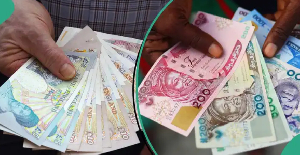The Chairman of the Presidential Committee on Fiscal Policy and Tax Reforms, Taiwo Oyedele, has identified discretionary demand for foreign exchange as a major driver of the naira’s volatility.
Speaking at the Nigerian Economic Summit Group’s half-year review of the economy in Lagos recently, Oyedele emphasised that the naira’s stability depends on addressing this discretionary demand.
According to Norrenberger’s latest report, the naira demonstrated relative stability in the first half of 2025, with the Central Bank of Nigeria’s consistent foreign exchange interventions aimed at maintaining market stability.
The naira appreciated marginally by 0.20 per cent at the official market, closing at N1,532/$, while it recorded a stronger gain of 5.10 per cent in the parallel market, closing at N1,575/$.
Oyedele noted that Nigeria has more dollar inflow than outflow legitimately, but stressed that discretionary demand remains a significant challenge. “If we produce and keep producing without addressing discretionary demand, the naira will not stabilise at a lower rate,” he said.
He added, “I believe that the naira is significantly undervalued. Imagine if we get the naira to sub 1,000/$; just imagine what that means for everything from inflation to cost of living, to standard of living, to poverty.”
Oyedele also called for transparency as a criterion for FAAC allocation, suggesting that the conditions for sharing money on a monthly basis should include transparency.
“Why don’t we make the conditions of sharing money on a monthly basis include transparency? Why is it only the population of the state?” he asked.
Regarding tax reforms, Oyedele clarified that the reforms are not designed to rake in more money from next year. “In fact, one of the things we did, which was why we wanted to raise VAT, but it wasn’t popular. The reform we did to VAT is likely to result in a drop of VAT revenue by up to 60 per cent,” he said.
“We’re hoping we can close that gap by closing the tax evasion gap and getting people to pay who are supposed to pay.”
Business News of Sunday, 31 August 2025
Source: www.punchng.com













